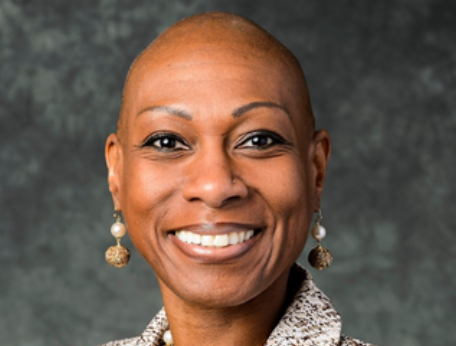You have /5 articles left.
Sign up for a free account or log in.

The death of Antoinette “Bonnie” Candia-Bailey has shaken Lincoln University and Black women academics across the country.
Lincoln University
The president of Lincoln University of Missouri went on paid administrative leave Friday after the university’s vice president of student affairs died by suicide last week, according to a news release from the Board of Curators, the university’s governing board.
The board hired a third-party investigator to review President John Moseley’s conduct toward Antoinette (Bonnie) Candia-Bailey, who claimed in emails to him and to the board that he caused her mental harm while she was suffering from depression and anxiety. The news of her death on Jan. 8 left the historically Black university’s campus reeling and has sparked a larger conversation nationwide about the pressures put on Black women in academe and the negative effects on their mental health. Candia-Bailey had served in her position for less than a year.
“As a Board, we are committed to make certain the mental health of Lincoln University employees is a priority and that every employee is always treated with dignity and respect,” Board of Curators president Victor Pasley said in the release. “The Board has confidence in the leadership team we have at Lincoln, but as we all work together to serve students and the Lincoln University community, this review will fully examine important questions, concerns and gather facts. Dr. Moseley agrees those issues should be examined and has volunteered to go on leave during the review so that it can move forward in a fully independent way.”
An earlier statement from the university described Candia-Bailey as a “gifted colleague and always a passionate advocate for Lincoln University, HBCUs and other causes in which she believed.”
Moseley sent Candia-Bailey a termination letter on Jan. 3, obtained by Inside Higher Ed, outlining his “serious concerns” with her work performance, including failing to follow his and other administrators’ instructions in certain instances, charging nonstandard dorm rates for some students without proper approval resulting in a loss of revenue, and failing to address concerns raised by her employees. Another letter he sent that day said she was to go on administrative leave until her firing went into effect in February. A notice also said she must vacate her apartment on campus by that time, otherwise campus police “will promptly remove you and your possessions from the apartment.”
Candia-Bailey sent an email to Moseley on the day she died specifying who from the administration should collect her belongings and speak with her family.
“You are not to have any contact,” she wrote in the email, shared with Inside Higher Ed. “You’ve caused enough harm and mental damage.”
She detailed a negative evaluation she received in November and said in the email that their relationship had gone “downhill” after she submitted documentation under the Family and Medical Leave Act and the Americans With Disabilities Act “due to my severe depression and anxiety.” She said she asked for an improvement action plan but Moseley “ignored requests (failing to respond to emails), or when face-to-face, danced around the topic.”
“You intentionally harassed and bullied me and got satisfaction from sitting back to determine how you would ensure I failed as an employee and proud alumna,” she wrote.
An anguished email from Candia-Bailey to the board in November, obtained by Inside Higher Ed, indicates she previously brought up her mental health to the board and to Moseley.
Alumni are calling for Moseley’s immediate termination.
Sherman Bonds, president of the Lincoln University National Alumni Association, wrote a letter to Pasley on Jan. 9 saying that the incident left the institution “heavy-laden with despair, discontent, and disappointment.”
“I have become compelled to demand a change in the Office of the Presidency of the University effective immediately,” he wrote. “Today I along with many others assert this appeal to you and the Board. We—the community, family members, friends, and alumni—seek a path to healing.”
Bonds told Inside Higher Ed that he was “overwhelmed” by the news of Candia-Bailey’s death and quickly started receiving emails and phone calls from other alumni feeling the same way.
“People out there were hurting,” he said. “I thought the health of the university was at stake … This is a tragedy that happened on the watch of this administration, and to heal, that person needs to be removed.”
Alumni have taken to social media with the hashtag #FireMoseley, with some posts arguing Moseley, who is white, shouldn’t have been selected to lead the HBCU in the first place. (Bonds and other alumni have disagreed with Moseley’s leadership on other issues.)
There’s also been an outpouring on social media from Black female academics who see Candia-Bailey’s passing as emblematic of some of the challenges they face in higher ed settings and the sometimes-dire costs to their mental health.
“Black women are held to very different standards,” said Jasmine Roberts-Crews, a strategic communication lecturer at Ohio State University. “There’s this sentiment among many Black people in general that you have to work twice as hard to get half as much respect, accolades and empathy as white people do. And this is worse when you consider the compounding oppression of both racism and sexism that Black women often experience in higher education.”
Roberts-Crews said those pressures can wear away at Black women in the academy and contribute to “burnout, self-doubt and really this tendency to want to be perfect.”
She also noted that Candia-Bailey’s death comes on the heels of the resignation of Claudine Gay, Harvard’s first Black woman president. Gay’s six months at the institution ended after her performance at a December House hearing on campus antisemitism sparked outrage and amid accusations of plagiarism. The two stories raise similar concerns for Roberts-Crews.
“Why is it that with Dr. Gay, there was this impulse to double-check her qualifications, double-check her dissertation?” she said. “Has that ever happened in the history of Harvard’s presidency? Why was it that with the first Black woman, there was an impulse to do that but not with all these white male presidents?”
“It makes me wonder, personally, as a Black woman … I want to pursue a leadership role in higher education—is it really worth it?” she said. “Because I’m not seeing Black women in these roles actually succeed.”
Research has shown that Black women in academe, particularly faculty members and scholars, are more harshly judged and evaluated by students, non-Black colleagues and supervisors. They’re also often asked to do more service work and student mentorship, for which they aren’t credited and that largely goes unacknowledged or accounted for in tenure and promotion reviews. They also face significant barriers to getting tenure.
What’s more, Black women in higher ed, including at HBCUs, often have heavy teaching loads in addition to service and research expectations.
Ashley Robertson Preston, assistant professor of history at Howard University, said she hopes Candia-Bailey’s death prompts campus leaders across the country to take concrete steps to protect the mental health of Black female academics. She wants to see institutions ensure that faculty members and administrators have easy access to mental health care and equal access to resources when they’re in crisis.
She hopes campus leaders “hear Black women,” she said, “hear them when they cry, hear them when they say, ‘I’m not OK,’ hear them when they say, ‘This is what I need to be successful’ … Let her death be a spark to make change. We don’t want this to be another name that loses significance. Let’s honor her with our actions.”
If you or someone you know are in crisis or considering suicide and need help, call the 988 Suicide & Crisis Lifeline by dialing 9-8-8, or the Crisis Text Line by texting HOME to 741741.


.png)






.jpg?itok=cjynvv9F)